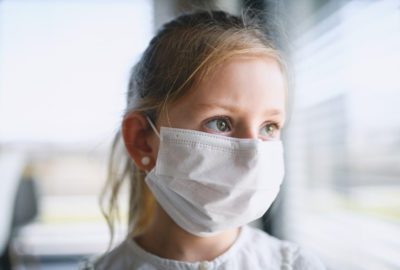Earlier this month, CDC Director Dr. Rochelle Walensky put children and the COVID debate into perspective:
“I think we fall into this flawed thinking of saying that only 400 of these 600,000 deaths from COVID-19 have been in children. Children are not supposed to die, so 400 is a huge amount,” she told lawmakers during a July 20 hearing.
It’s a perspective American SPCC agrees with wholeheartedly. Even though children account for about a half-percent of COVID-related deaths, these are still tragic and avoidable.
American SPCC’s overall mission is to save kids from preventable deaths. And COVID-19 is the latest imminent threat to children’s health and survival.
Still, children aren’t being properly protected. A large portion of vaccinated Americans feel more comfortable going back to a sense of normal. Many have relaxed old safety measures such as wearing masks and social distancing.
Then the Delta variant arrived.
Now, COVID-related child deaths are rising in states with high community transmission. Some doctors at hospitals in these areas report having more children in their ER’s than at any other time during the pandemic. It’s an unsettling trend that deserves more attention.
On top of this, we are just starting to learn about the mental health impact the pandemic is having on children. In fact, experts are beginning to associate the disruptions caused by COVID-19 with Adverse Childhood Experiences (ACEs) — the types of traumatic experiences researchers have linked to negative effects on health, well-being and opportunities later in life. Whether a child is experiencing changes to routines, breaks in learning, missed life events or instability within the household, the research is clear: these events shouldn’t be taken lightly.
As another uncertain school year begins for millions of young Americans, we must ask whether we are doing our part to bring as much stability back to their lives as possible. And when it comes to keeping kids physically and mentally healthy, we must certainly do the same.
Unfortunately, many of the solutions to these issues are fraught with political polarization. But they don’t have to be. When it comes to saving or improving children’s lives, it’s the job of our entire community to step up and make it happen.
It’s our hope that more Americans will start to follow the guidance from our nation’s top experts. For many, this will mean putting masks back on, getting vaccinated or quarantining when you feel the slightest of symptoms. We may not be able to individually see the impacts of these decisions in our own homes. However, similarly, when we plant seeds in our world, we do not always see the impact even though it is there. As adults, parents, and guardians of our youth’s futures, let’s work together to continue planting positive seeds by ensuring that there is a future we can all look forward to.
—
CDC Director quote:
States rising/case numbers:
Trauma for kids: https://www.cdc.gov/coronavirus/2019-ncov/daily-life-coping/parental-resource-kit/index.html
What are ACEs
More what are ACEs:
https://www.joiningforcesforchildren.org/what-are-aces/
Experts link ACEs to pandemic
Preventing ACEs
https://www.cdc.gov/violenceprevention/aces/fastfact.html
Studies site mental health impacts for kids during COVID

